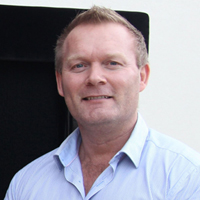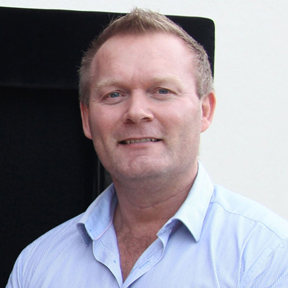Local subsidiary VetPartners eyes further acquisitions even as COVID-19 hit looms

John Burns 288

Photo courtesy of VetPartners
John Burns is CEO of VetPartners, now the largest veterinary practice owner in Australia. Burns joined the company in 2016 after working 18 years managing human medical groups in Australia and the U.S.
Australia's veterinary-practice sector is undergoing a shakeup with the purchase by VetPartners, the country's second-largest practice owner, of third-ranked National Veterinary Care (NVC).
NVC shareholders overwhelmingly approved the AU$248.4 million (US$143 million) sale during a shareholder meeting on March 19 in Brisbane. The deal received final court confirmation today.
The transaction creates an entity with about 250 practices, most in Australia, with 55 in New Zealand and one in Singapore.
VetPartners is owned by California-based National Veterinary Associates (NVA), one of the largest corporate consolidators in the U.S. The deal has led VetPartners to leapfrog Greencross Vets — which has more than 150 practices — to become the biggest veterinary practice owner Down Under.
And VetPartners hasn't had its fill.
"The merger with NVC is a really great opportunity for us to achieve scale, but we expect we can continue the growth trajectory we were on," CEO John Burns told the VIN News Service in a telephone interview shortly after shareholders voted last week. VetPartners was established by NVA in 2016 with 32 practices and grew to own 145 practices before the NVC merger.
Burns said the combined company is planning to acquire "around 15 to 20 clinics a year" in Australia and New Zealand for the next "five to eight years." He added that VetPartners would apply a "thoughtful approach to growth," especially as the COVID-19 pandemic clouds the economic outlook.
VetPartners typically takes 100% ownership of the practices it buys, although about 20 currently have a joint-venture structure by which the original owner has maintained an equity stake. Another six have opted for a new buy-in arrangement that allows veterinarians to acquire equity in VetPartners-owned businesses. All VetPartners practices maintain their original branding.
The company's ambitious expansion plans are not out of place in most developed veterinary markets, including those of the United Kingdom and North America, which have seen rapid consolidation of practice ownership.
The Australasian market appears to be a particularly fertile hunting ground for the likes of NVA. The market is much more fragmented than in the U.K., where some 50% of practices are owned by corporate consolidators, according to an estimate by the nonprofit Federation of Independent Veterinary Practices.
In the U.S., NVA counts among consolidators that include Mars Inc., VetCor, Pathway Vet Alliance and many smaller but fast-growing entities. Together, practice consolidators control about 36% of America's small animal market by total revenue, according to a 2019 estimate by Michael Dicks, former chief economist of the American Veterinary Medical Association. The market share by revenue likely is greater now.
In Australia, Burns says corporate consolidators account for just 17% to 18% of the market by revenue, with a roughly similar percentage applying in New Zealand.
"We still have quite a way to go until we exhaust the pull of really good community practices that want to join a model like ours," Burns said, adding, "We also see organic growth value in Australia. The reality is that pet owners are looking for increased services."
Burns said one of the major draws of acquiring NVC — at a price about 12.5 times its annual earnings — is its five training centers that provide veterinarians and veterinary nurses with opportunities for ongoing learning in fields such as dentistry. He said VetPartners intends to build another three or four training centers to which in-house staff will be offered free or subsidized access.
Burns said he expects scale benefits also will flow from the deal, with the company's enlarged size giving it more leverage with suppliers. Practice closures won't be necessary, he added, because there is little geographic overlap from the merger: About 85% of the combined companies' clinics are at least 25 kilometers (15.5 miles) apart.
Australia appears to have no industry body that solely represents the interests of independent practices. The private company Independent Vets of Australia dubs itself as a cooperative-style buyers group that enables independents "to level the playing field with the growing number of corporate-owned practices and big box pet stores entering the market in Australia." Independent Vets of Australia did not respond to requests from VIN News for comment.
How VetPartners is dealing with COVID-19
NVC shareholders were widely expected to approve VetPartners' takeover bid, first pitched on Dec. 15 at AU$3.70 a share, an offer 57% above NVC's closing price on the previous day. The market value of companies everywhere have since plummeted in the wake of COVID-19's spread, making the VetPartners bid look even more attractive to investors casting their votes.
Burns said he accepts that business will be "financially disrupted" over the short- to medium-term by COVID-19 and increasingly drastic government efforts to contain its spread. The company has "no plans at this time" to lay off any workers, Burns said, while acknowledging that the situation is changing quickly.
VetPartners, he said, is trying to prevent staff from suffering financial hardship and is prepared to offer them negative leave balances to keep them paid even if they cannot work. "Unpaid leave creates financial distress," he said. "We will take a hit, but in the long term we want to come out as an employer who has looked after our people."
Until recently, Australia had seen a relatively low incidence of COVID-19 cases, but the number of infections is rising quickly. At last count, there were 2,423 confirmed cases and eight deaths, according to the federal government.
The country this week introduced stricter containment measures, including the closure of all bars, restaurants, cinemas and gyms. Australia also has banned all nonresidents from entering the country. It has not forced any veterinary practices to close, and NVC confirmed in a stock market filing today that its Australian clinics remained open.
In New Zealand, however, where the government has introduced more stringent lockdown measures than in Australia, NVC said that "some" of its clinics had closed, without specifying how many. NVC said those classified as essential services continue to operate, although at significantly reduced capacity and for emergency services only.
In the interview last week, Burns said VetPartners was advising pet owners visiting clinics to wait outside to minimize transmission risk. "We call it client pre-consulting, which means that the pet is picked up at the front," he explained. While the veterinarian examines the pet, the owner might go grab a coffee before returning, or choose to wait in their car the whole time, Burns said. Once the exam is done, a veterinary team member delivers the pet back to the waiting owner, "and then the vet will ring them and provide them with the feedback from the [exam]," he said.
VetPartners also is developing telemedicine support across its network, Burns said, and, should the situation worsen, has identified hub clinics that would stay open in central locations if others are forced to close.
"We're also looking at things like potentially pushing nonessential work out if things deteriorate," Burns said "We want to make sure the pets that need to be seen can be seen, and those with lower-acuity consults, like vaccinations, can wait."